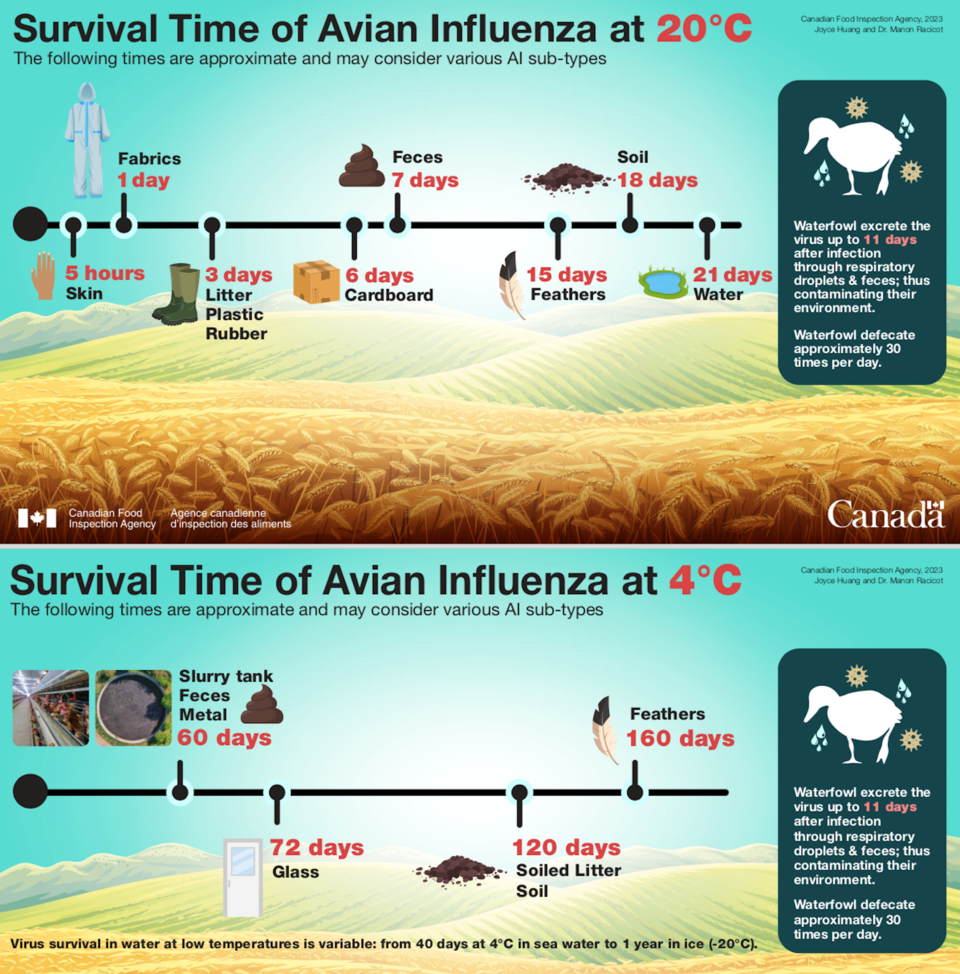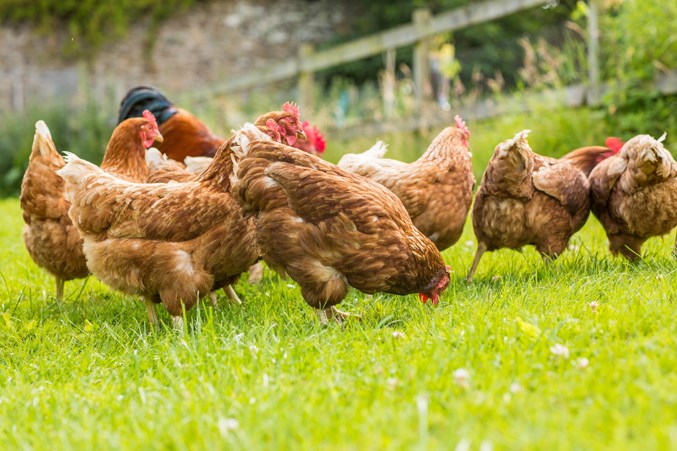Avian influenza hit the Province of Alberta for the first time in 2022 and outbreaks are still popping up two years later.
Alberta is in a natural flight path for migratory birds, and influenza is known to be moved around by waterfowl, explained Maria Leslie, information officer for the Alberta Poultry Industry Emergency Management team.
Since Jan. 1, there have been two confirmed cases, one in a commercial flock in Mountain View County and the second in a backyard flock in Vermilion River County.
“There are still some active primary control zones that have carried over [from] earlier in 2023,” Leslie said.
When Avian influenza is detected, the Canadian Food Inspection Agency (CFIA) quarantines the infected premises, and applies movement restrictions on farms in close proximity in what are called “control zones”. In these zones, movement control measures, enhanced biosecurity protocols, and surveillance are implemented.
Since 2022, Alberta has had 82 infected premises, including commercial and non-commerical flocks, Leslie stated.
Commercial farms, including egg hatcheries, turkey, broiler, and layer farms, already follow mandatory animal care and food safety programs.
They have a stringent set of biosecurity protocols that are implemented on a daily basis to keep disease out, Leslie explained.
There is no standard definition of the word biosecurity, but it has become the accepted term used to describe the measures needed to protect against the introduction and spread of diseases, according to the CFIA.
Those measures include changing clothes, always changing boots, and limiting the amount of visitors into the barn. All producers have a log book in their barns to keep track of visitors, including services providers who frequently enter the premises.
“One thing that I think may not be well known is that influenza likes cold temperatures and can live in the ice for a year,” Leslie said. “So when winter comes, it may be perceived as an off season for avian influenza, but it's actually still an opportune time if you're not practicing strict biosecurity protocols –that you could potentially track it into your barn or into your small coop if there's no boot changes or things like that.”

Leslie noted that everyone is doing their best to ensure the care of their livestock, but those who aren’t farmers also need to be aware of the control zones and not spreading disease.
To anyone new to the industry or those with a backyard flock, Leslie suggested they inform themselves on the different tools and practices of biosecurity and seek out a local veterinarian for advice.
“We do want to ensure that we have a vibrant poultry industry in Alberta regardless of what kind of birds you have and that everybody is taking good care of their animals,” Leslie said.
Health Canada continues to ensure that Avian influenza is not a food safety issue, but causes high mortality in poultry.




